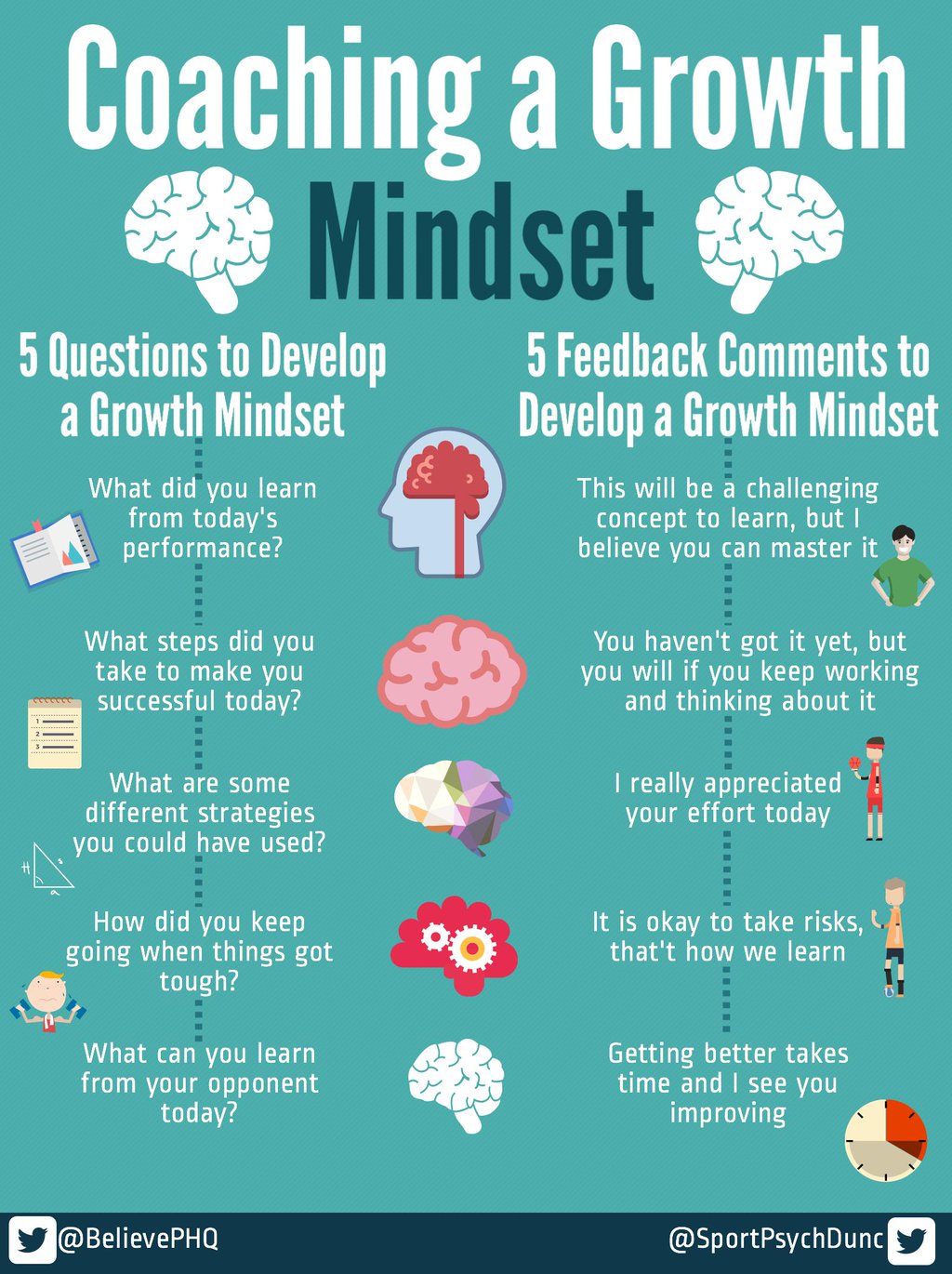Unlocking the Mindset of Successful Entrepreneurs
Entrepreneurship can be a daunting and intimidating experience, especially for those who are just starting out. Fear and self-doubt are common obstacles that many entrepreneurs face, and if left unchecked, can hold them back from achieving their goals. Overcoming fear and self-doubt for entrepreneurs requires a deep understanding of the underlying causes of these emotions and a willingness to adopt a growth mindset.
Successful entrepreneurs often possess a unique mindset that enables them to navigate challenges and setbacks with confidence and resilience. This mindset is characterized by a willingness to take calculated risks, a focus on learning and growth, and a ability to reframe failure as an opportunity for growth. By adopting this mindset, entrepreneurs can overcome fear and self-doubt and unlock their full potential.
One of the primary causes of fear and self-doubt in entrepreneurs is the fear of failure. This fear can be overwhelming and can hold entrepreneurs back from taking the necessary risks to grow their business. However, by reframing failure as an opportunity for growth and learning, entrepreneurs can begin to see it as a necessary step towards success. As Thomas Edison once said, “I have not failed. I’ve just found 10,000 ways that won’t work.”
Another key aspect of the entrepreneurial mindset is a focus on learning and growth. Successful entrepreneurs are constantly seeking out new knowledge and skills to stay ahead of the curve. By adopting a growth mindset, entrepreneurs can overcome fear and self-doubt and stay focused on their goals. As Carol Dweck, a leading expert on the growth mindset, notes, “The growth mindset is based on the idea that your abilities and intelligence can be developed through dedication and hard work.”
By understanding the causes of fear and self-doubt and adopting a growth mindset, entrepreneurs can overcome these obstacles and achieve success. In the next section, we will explore the various sources of fear and self-doubt that entrepreneurs may experience, and provide practical tips and strategies for overcoming them.
Recognizing the Sources of Fear and Self-Doubt
Fear and self-doubt can arise from a variety of sources, and it’s essential for entrepreneurs to recognize and understand these sources to overcome them. One of the most common sources of fear and self-doubt is the fear of failure. This fear can be overwhelming and can hold entrepreneurs back from taking the necessary risks to grow their business. For example, a startup founder may be hesitant to launch a new product due to fear of it not being well-received by the market.
Another source of fear and self-doubt is the fear of success. This may seem counterintuitive, but some entrepreneurs may feel anxious about achieving success due to the increased responsibility and pressure that comes with it. For instance, a small business owner may feel uncertain about how to manage a growing team or increased workload.
Imposter syndrome is another common source of fear and self-doubt among entrepreneurs. This is a feeling of inadequacy and self-doubt that can make entrepreneurs feel like they are not good enough or that they are just pretending to be something they’re not. For example, a entrepreneur may feel like they don’t have the necessary skills or experience to be successful, despite their achievements.
Other sources of fear and self-doubt include fear of the unknown, fear of change, and fear of not meeting expectations. These fears can be debilitating and can hold entrepreneurs back from achieving their goals. However, by recognizing and understanding these sources of fear and self-doubt, entrepreneurs can begin to develop strategies to overcome them.
For instance, entrepreneurs can develop a growth mindset by focusing on learning and growth, rather than perfection. They can also develop a support network of peers, mentors, and role models who can provide guidance and encouragement. By recognizing and addressing the sources of fear and self-doubt, entrepreneurs can overcome these obstacles and achieve success.
In the next section, we will explore practical tips and strategies for building confidence and resilience, which are essential for overcoming fear and self-doubt.
How to Build Confidence and Resilience
Building confidence and resilience is crucial for overcoming fear and self-doubt as an entrepreneur. When you have confidence in your abilities and a resilient mindset, you’re better equipped to handle challenges and setbacks. Here are some practical tips and strategies for building confidence and resilience:
Reframe negative self-talk: The way you talk to yourself matters. Negative self-talk can erode your confidence and make you more susceptible to fear and self-doubt. Practice reframing negative thoughts into positive and empowering ones. For example, instead of saying “I’m not good enough,” say “I’m capable and competent, and I can learn and grow.”
Focus on strengths: Rather than dwelling on your weaknesses, focus on your strengths and the things you do well. Celebrate your successes and accomplishments, no matter how small they may seem. This will help you build confidence and develop a more positive self-image.
Develop a support network: Surround yourself with people who support and encourage you. This could be friends, family, mentors, or a business coach. Having a support network can help you stay motivated and focused, even when faced with challenges and setbacks.
Practice self-care: Taking care of your physical, emotional, and mental health is essential for building resilience. Make sure you’re getting enough sleep, eating well, and exercising regularly. Also, take time to relax and recharge, whether that’s through meditation, yoga, or reading a book.
Learn from failures: Instead of dwelling on failures, use them as opportunities to learn and grow. Analyze what went wrong and how you can improve next time. This will help you develop a growth mindset and build resilience.
By implementing these strategies, you can build confidence and resilience, and overcome fear and self-doubt as an entrepreneur. Remember, it’s a journey, and it takes time and effort to develop a confident and resilient mindset. But with persistence and dedication, you can achieve your goals and succeed as an entrepreneur.
In the next section, we’ll explore the importance of embracing failure as a learning opportunity, and how it can help entrepreneurs develop a growth mindset.
Embracing Failure as a Learning Opportunity
Failure is an inevitable part of the entrepreneurial journey. However, it’s how entrepreneurs respond to failure that can make all the difference. Instead of dwelling on failure, successful entrepreneurs view it as a learning opportunity. They use failure as a chance to reflect, learn, and grow, and to develop a growth mindset.
Thomas Edison, the inventor of the light bulb, is a great example of this. He is famously quoted as saying, “I have not failed. I’ve just found 10,000 ways that won’t work.” Edison’s attitude towards failure is a testament to the importance of embracing failure as a learning opportunity.
Another example is Steve Jobs, the co-founder of Apple. Jobs was fired from Apple in 1985, but he didn’t let that failure hold him back. Instead, he used the experience to learn and grow, and he eventually returned to Apple to lead the company to even greater success.
Embracing failure as a learning opportunity requires a mindset shift. It requires entrepreneurs to view failure as a natural part of the learning process, rather than as a source of shame or embarrassment. By doing so, entrepreneurs can develop a growth mindset and overcome fear and self-doubt.
So, how can entrepreneurs start to view failure as a learning opportunity? Here are a few tips:
Reflect on your failures: Take the time to reflect on your failures and think about what you can learn from them. What went wrong? What would you do differently next time?
Focus on the lesson, not the failure: Instead of dwelling on the failure itself, focus on the lesson that can be learned from it. What can you take away from the experience?
Use failure as a chance to grow: View failure as a chance to grow and learn, rather than as a source of shame or embarrassment. Use the experience to develop new skills and knowledge.
By embracing failure as a learning opportunity, entrepreneurs can develop a growth mindset and overcome fear and self-doubt. In the next section, we’ll explore the importance of creating a positive self-talk habit in overcoming fear and self-doubt.
Creating a Positive Self-Talk Habit
Positive self-talk is a powerful tool for overcoming fear and self-doubt. When entrepreneurs practice positive self-talk, they can build confidence, boost their mood, and develop a more optimistic outlook on life. In this section, we’ll explore the importance of positive self-talk and provide tips and strategies for creating a positive self-talk habit.
Why is positive self-talk important? Negative self-talk can be a major obstacle for entrepreneurs. When we focus on our weaknesses and failures, we can become mired in self-doubt and fear. Positive self-talk, on the other hand, can help us build confidence and develop a more positive mindset.
So, how can entrepreneurs create a positive self-talk habit? Here are a few tips:
Practice affirmations: Affirmations are positive statements that can help entrepreneurs build confidence and develop a more positive mindset. Examples of affirmations include “I am capable and competent,” “I am worthy of success,” and “I can overcome any obstacle.”
Use visualization techniques: Visualization techniques can help entrepreneurs imagine themselves achieving their goals and overcoming challenges. This can help build confidence and develop a more positive mindset.
Focus on strengths: Instead of dwelling on weaknesses, entrepreneurs can focus on their strengths and the things they do well. This can help build confidence and develop a more positive self-image.
Surround yourself with positive influences: The people we surround ourselves with can have a big impact on our mindset and self-talk. Surrounding ourselves with positive influences, such as supportive friends and family, mentors, and role models, can help us build confidence and develop a more positive mindset.
By creating a positive self-talk habit, entrepreneurs can build confidence, boost their mood, and develop a more optimistic outlook on life. In the next section, we’ll explore the importance of self-reflection in developing a growth mindset.
Developing a Growth Mindset through Self-Reflection
Self-reflection is a powerful tool for developing a growth mindset and overcoming fear and self-doubt. By taking the time to reflect on their thoughts, feelings, and actions, entrepreneurs can gain a deeper understanding of themselves and their motivations. This can help them identify areas for improvement and develop strategies for overcoming obstacles.
So, how can entrepreneurs practice self-reflection? Here are a few tips:
Journaling: Writing down your thoughts and feelings can be a great way to process and reflect on your experiences. Try setting aside a few minutes each day to journal and reflect on your progress.
Meditation: Meditation can be a powerful tool for self-reflection and mindfulness. By taking a few minutes each day to meditate, entrepreneurs can calm their minds and focus on their goals.
Seeking feedback: Seeking feedback from others can be a great way to gain new insights and perspectives. Try asking for feedback from trusted friends, family, or mentors, and be open to constructive criticism.
Practicing mindfulness: Mindfulness is the practice of being present in the moment and fully engaging with your thoughts and feelings. By practicing mindfulness, entrepreneurs can develop a greater sense of self-awareness and self-acceptance.
By practicing self-reflection, entrepreneurs can develop a growth mindset and overcome fear and self-doubt. In the next section, we’ll explore the importance of surrounding yourself with positive influences and building a positive support network.
Surrounding Yourself with Positive Influences
Surrounding yourself with positive influences is crucial for overcoming fear and self-doubt as an entrepreneur. When you surround yourself with supportive people, you can gain new insights, build confidence, and develop a more positive mindset.
So, who are the positive influences that can help you overcome fear and self-doubt? Here are a few examples:
Supportive friends and family: Having a supportive network of friends and family can make a big difference in your entrepreneurial journey. They can offer encouragement, provide valuable advice, and help you stay motivated.
Mentors: A mentor can be a valuable source of guidance and support. They can offer valuable insights, provide feedback, and help you develop a growth mindset.
Role models: Having a role model can be a great way to stay motivated and inspired. Look for someone who has achieved success in your industry and learn from their experiences.
Positive peers: Surrounding yourself with positive peers can be a great way to stay motivated and inspired. Look for people who share your values and goals, and who can offer support and encouragement.
By surrounding yourself with positive influences, you can build confidence, develop a growth mindset, and overcome fear and self-doubt. In the next section, we’ll provide a step-by-step guide for creating a personalized plan for overcoming fear and self-doubt.
Putting it all Together: Creating a Personalized Plan for Overcoming Fear and Self-Doubt
Now that we’ve explored the common fears and self-doubts that entrepreneurs face, and the strategies for overcoming them, it’s time to put it all together. In this section, we’ll provide a step-by-step guide for creating a personalized plan for overcoming fear and self-doubt.
Step 1: Identify Your Fears and Self-Doubts
Take some time to reflect on your fears and self-doubts. What are they? Where do they come from? How do they hold you back?
Step 2: Develop a Growth Mindset
Start to develop a growth mindset by embracing challenges and viewing failures as opportunities for growth. Practice self-reflection and seek feedback from others.
Step 3: Build Confidence and Resilience
Build confidence and resilience by reframing negative self-talk, focusing on strengths, and developing a support network.
Step 4: Surround Yourself with Positive Influences
Surround yourself with positive influences, such as supportive friends and family, mentors, and role models.
Step 5: Create a Positive Self-Talk Habit
Create a positive self-talk habit by using affirmations and visualization techniques.
Step 6: Embrace Failure as a Learning Opportunity
Embrace failure as a learning opportunity and use it to develop a growth mindset.
By following these steps, you can create a personalized plan for overcoming fear and self-doubt. Remember, overcoming fear and self-doubt is a journey, and it takes time and effort. But with persistence and dedication, you can achieve your goals and succeed as an entrepreneur.





